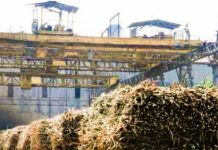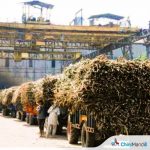New Delhi [India], March 3 (ANI): Conditions of wheat crops in major growing states in India are normal as of date, said the Ministry of Agriculture & Farmers Welfare on Thursday.
A meeting of the committee constituted by the Department of Agriculture & Farmers’ Welfare (DA&FW) to monitor the situation of wheat crops was held recently at ICAR – Indian Institute of Wheat and Barley Research, Karnal.
The wheat crop condition was presented and discussed in detail by the states of Punjab, Haryana, Uttar Pradesh, Rajasthan and Madhya Pradesh, which account for more than 85 per cent of wheat acreage in the country.
Wheat, a rabi crop in an advanced maturing stage, is expected to hit mandis in the next few weeks.
“Due to intensive efforts of ICAR and SAUs, large numbers of terminal heat stress tolerant varieties were developed and are now under cultivation in an estimated area of more than 50% particularly in North Western plain zone. Also, about 75% area is under early and timely sowing conditions in Haryana and Punjab and therefore, the crop area with early sowing, will not be affected by heat conditions in the month of March,” government said in a statement.
At the Ministry of Agriculture and Farmers’ Welfare, Crop Weather Watch Group Meetings are being conducted every week to monitor the crop situation.
“It was also decided that all extension agencies from Central and State Governments along with ICAR/SAUs should visit the farmers’ fields regularly and provide timely advisories to the farmers, wherever heat stress conditions occur,” the government said.
Notably, multiple rounds of heat waves in several wheat-growing regions in India ahead of the rabi harvest this year affected crop production, though with varying degrees. Wheat pods in the mature stage typically shrink if overexposed to heat.
As the tensions between Russia and Ukraine turned into a full-blown war in 2022, export demand for wheat got a boost, resulting in lifetime high prices of the staple food grain in the local mandis.
To manage the overall food security of the country as well as meet the needs of the neighbouring and other vulnerable countries, India then amended the export policy of wheat by putting its export under the “prohibited” category.
Global wheat prices have shown substantial volatility in the past one year as both the countries — Ukraine and Russia — are two major suppliers of wheat. The Indian government did not stop at just restricting exports of wheat.
After a ban on exports of wheat grain, the Centre has now put restrictions on the exports of wheat flour (atta) exports and other related products like maida, semolina (rava / sirgi), wholemeal atta and resultant atta.
While banning exports of wheat, the government stated that the move was made to manage the country’s overall food security and meet the needs of the neighbouring and other vulnerable countries. (ANI)












